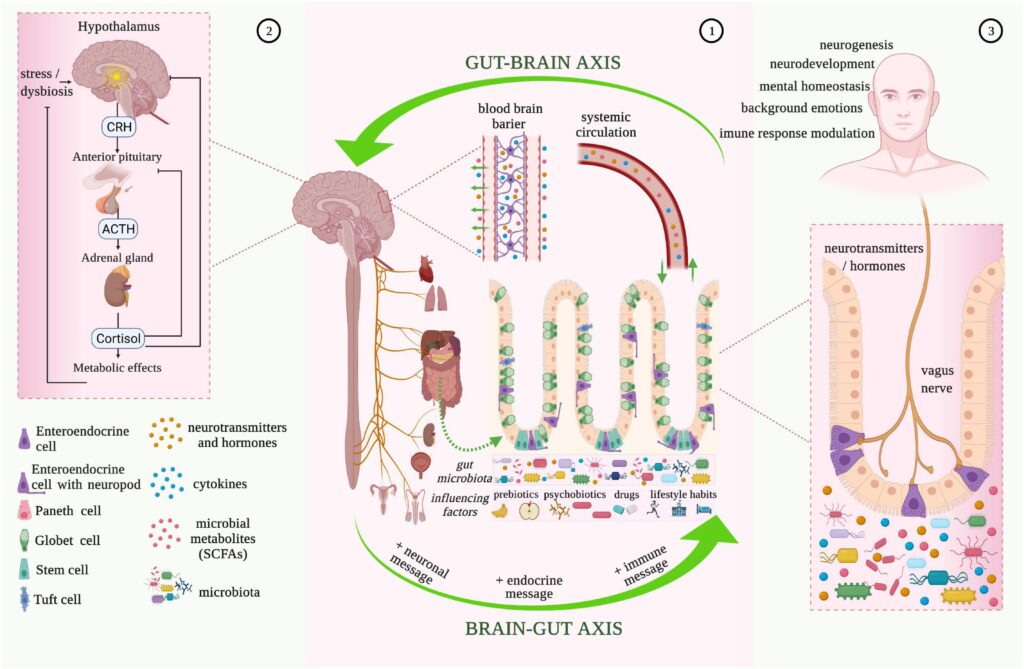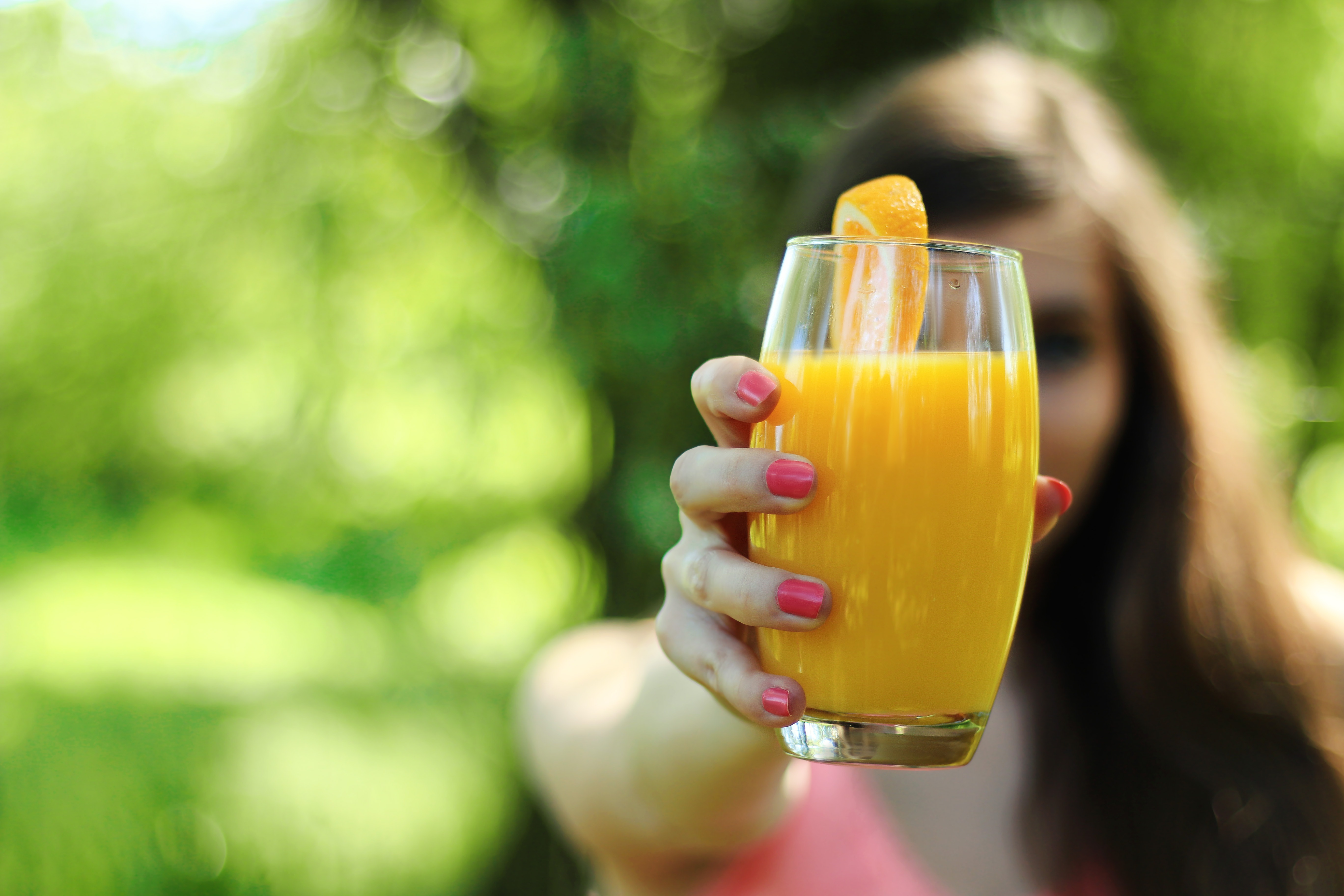If you’ve ever battled with food cravings and told yourself it’s just a lack of willpower, it’s time to rewrite that story. Cravings aren’t about weakness or self-control—they’re the result of complex signals from your body, including messages from the tiny but powerful microbes living in your gut. Understanding this connection can replace shame with self-compassion and empower you to make meaningful, lasting changes to your health.
The Gut-Brain Connection: Why Your Cravings Aren’t Just in Your Head
Your gut is home to trillions of microbes that thrive on the food you eat. These microbes aren’t passive bystanders—they actively communicate with your brain through a system called the gut-brain axis, influencing how you feel, what you crave, and even your mood.
Here’s where it gets fascinating: different types of gut microbes prefer different kinds of food. If your diet is high in sugary or processed foods, you’re feeding the sugar-loving microbes. These microbes produce chemical signals that amplify your cravings for sweets, ensuring they get more of their preferred energy source. It’s not a lack of willpower—it’s biology!
On the other hand, if you eat more fibre-rich foods, like fruits, vegetables, and whole grains, you’ll nurture fibre-loving microbes. These microbes produce substances like short-chain fatty acids (SCFAs), which help regulate appetite, promote satiety, and reduce cravings for unhealthy foods.
A Microbial Tug-of-War in Your Gut
Imagine your gut as a kitchen, full of busy chefs. Each chef likes to work with their own preferred ingredients.
- If most of the chefs in your kitchen are sugar enthusiasts, they’ll keep requesting sugar to cook up their favourite dishes. These demands show up as cravings and can feel impossible to resist. It’s not willpower; it’s your sugar-loving chefs making sure their orders are heard loud and clear!
- But if your kitchen has fibre-loving chefs, they’ll be requesting fruits, veggies, and whole grains for their recipes. As you cater to their demands over time, the number of fibre-loving chefs in your kitchen increase, while the sugar-loving chefs reduce their numbers. As a result, you start to find wholefoods more appealing and the cravings for sugary foods slowly start to fade.
The beauty of this system is its adaptability. By slowly changing your diet, you can shift the balance of chefs in your gut, making healthier choices feel more natural and less like a battle.
How Long Does It Take to Shift Your Microbiome?
Here’s the encouraging part: your gut microbiome is incredibly dynamic. Research shows that microbial populations can begin to shift in as little as four days when you make dietary changes. However, for more sustained and significant changes, a few weeks to months of consistent effort are often needed. The key is patience and persistence—this is a journey, not a quick fix.
Practical Steps to Support a Balanced Microbiome
- Start Small
Begin by adding more fibre-rich foods like fruits, vegetables, whole grains, legumes, and nuts to your meals. Even small changes, like swapping sugary snacks for a handful of berries or adding a side of roasted veggies, can help. - Diversify Your Diet
Different gut microbes thrive on different types of fibre. Eating a wide variety of plant-based foods supports a more diverse and resilient microbiome. - Reduce Processed Foods
While it’s not about perfection, cutting back on sugary and highly processed foods can help shift the balance away from sugar-loving microbes over time. - Stay Consistent
Remember, your microbiome responds to what you eat most often, not occasionally. Consistency is key to nurturing long-term changes.
Leave Shame Behind
It’s time to stop blaming yourself for cravings. Instead, see them as signals from your gut microbiome—a system that’s been shaped by your past food choices but is entirely capable of transformation. By making gradual, realistic changes to your diet, you can shift the balance in your gut, reduce cravings, and feel more in control of your food choices.
This isn’t about willpower—it’s about working with your body. Every small, consistent step supports your health, and over time, you’ll notice the difference. Replace self-criticism with curiosity and compassion, and watch as your cravings and overall well-being begin to change.














